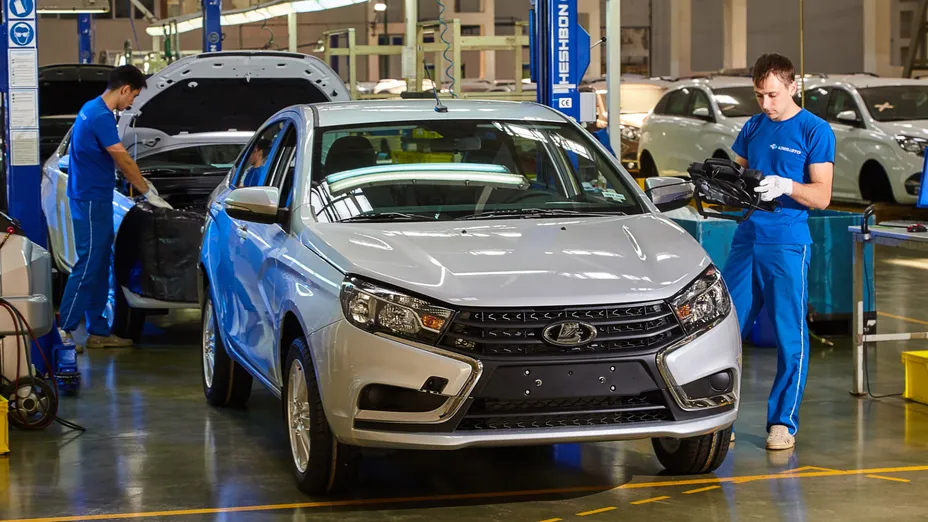In Kazakhstan, new car sales have increased by 58% in comparison with 2019 despite semiconductor deficiency and logistics issues, according to Energyprom.kz.
Post-pandemic decline
According to the International Organization of Motor Vehicle Manufacturers (OICA), 82.7 million new cars were sold from January to December 2021. Despite the global shortage of semiconductors, this is a 5% increase compared to 2020. However, it is also worth noting that the growth in sales of new cars compared to 2020 is not surprising and is expected: that year was characterised by a decrease not even in demand but in the ability to buy any goods at all due to the rampant COVID-19. Recall: in 2020, the coronavirus pandemic began, which ultimately influenced the ongoing shortage of microchips due to quarantine outages at the plants and factories producing them, and then the situation was exacerbated by logistical problems. At the same time, compared to the "pre-crisis" year of 2019, 2021 sales fell by 9.4%.
In Europe, the volume of new car sales in 2021 grew by only 1% compared to 2020; in particular, in Russia, the growth was 6.8%, in Italy - by 6.4%, in France - by 2%, in Spain - by only 0.3%, and in Germany, there was a sales decline of 9%.
In Asia, Oceania and the Middle East, sales rose 5.8%. At the same time, China, which leads in new car sales in 2021, saw an increase of 3.8%, but Japan and South Korea saw sales decline by 3.3% and 9%, respectively. Another important and negative moment for the industry: in March 2021 in Japan there was a fire at the second-largest plant in the world that produces automotive chips; it accounted for more than 20% of the total market of semiconductors.
Sales in Kazakhstan
In Kazakhstan, the deficit of semiconductors and logistical problems associated with the coronavirus pandemic did not prevent an increase in the volume of new car sales: the sector recorded an increase compared to 2020 by 27.4% at once. Moreover, compared to 2019, the growth was 58.2%.
The last two years, which have been extremely difficult for global automakers, have not halted the development of domestic companies. In particular, in 2020, the Hyundai Trans Kazakhstan automobile plant started operating in the country, whose cars quickly became one of the leaders in sales in the domestic market. For example, this year in the segment of new car sales Hyundai brand is the leader for the third month in a row, and in March of this year, its share of Hyundai was 30.1% of all new car sales in Kazakhstan.
A total of 10,800 new cars were sold in Kazakhstan in March 2022, an increase of 28.3% compared with March of last year.
At the same time, the situation in the world is noticeably worse than in Kazakhstan. Earlier, experts predicted market recovery and recovery of the global auto industry from the crisis by spring-summer of this year. Still, the current geopolitical situation provides new difficulties in producing microchips. Ukraine provides almost half of the world's demand for the noble gas neon, which is necessary for producing microchips, and the lack of this raw material can undermine the nascent recovery of the semiconductor industry.
Global new car sales have already declined, dropping 14% in March from March 2021 to 7.2 million. Sales of new cars in China declined by 6.3%, in the UK by 14.3%, in Germany by 17.5%, in South Korea by 18.1%, in Japan by 18.2%, and in neighboring Russia at once by 62.9% (however, in Russia everything is quite pessimistic about the industry as a whole, up to the readiness of the Ministry of Industry and Trade to reduce the mandatory safety requirements for cars produced by Russian car plants, that is, the Russian car industry is returning to the requirements that were in force 15 years ago).
In addition to the protracted and worsening problems with semiconductors, sales of new cars around the world may also be affected by another global logistics glitch. There are, unfortunately, plenty of prerequisites for this: for example, the new outbreak of coronavirus and the next wave of diseases in China, the largest logistics hub in the world, where entire districts and cities are quarantined when COVID-19 is detected. The disruption of supply chains is already hitting the global supply of all products also because of the geopolitical crisis caused by Russia, including the sanctions related to this situation.










